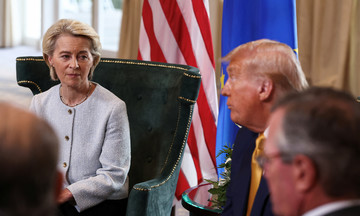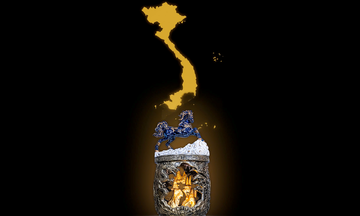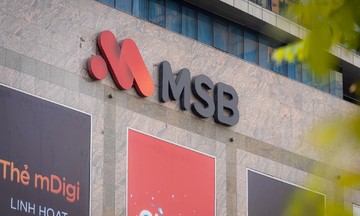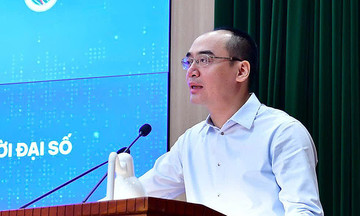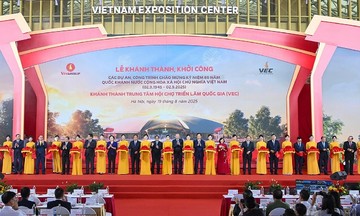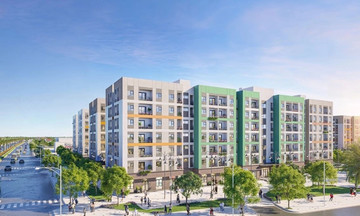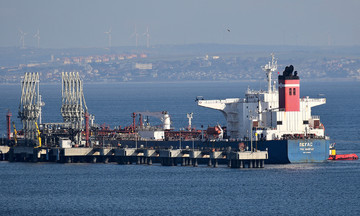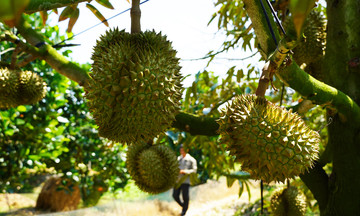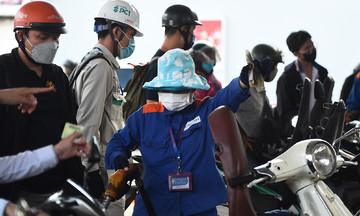The 35th Global Summit of Women, held from 3/7 to 5/7 in Berlin, Germany, brought together over 1,000 delegates from 60 countries. With the theme "Women: Restoring Value in the Digital Age", the event provided a platform for female leaders to share solutions for economic recovery and promote the role of women in sustainable development.
 |
The 35th Global Summit of Women. Photo: GSW |
The 35th Global Summit of Women. Photo: GSW
Representing Vietnam in the agriculture and food sector, Nguyen Thi Tra My shared the story of PAN Group, a company pursuing a closed agricultural value chain model, "from farm to fork," and its strategy for reaching international markets.
According to My, before becoming an agricultural powerhouse, leading the world in exports of rice, cashews, and coffee, Vietnamese agriculture was once considered a traditional, unattractive, and backward industry.
"15 years ago, when PAN Group was founded, the biggest challenge was not having a perfect strategy or understanding the market, but building trust with investors, partners, and customers," My shared at the summit.
To address this, she convinced investors of the potential of developing a closed agricultural value chain, from farm to fork, a strategy she believed was not only feasible but also capable of global reach.
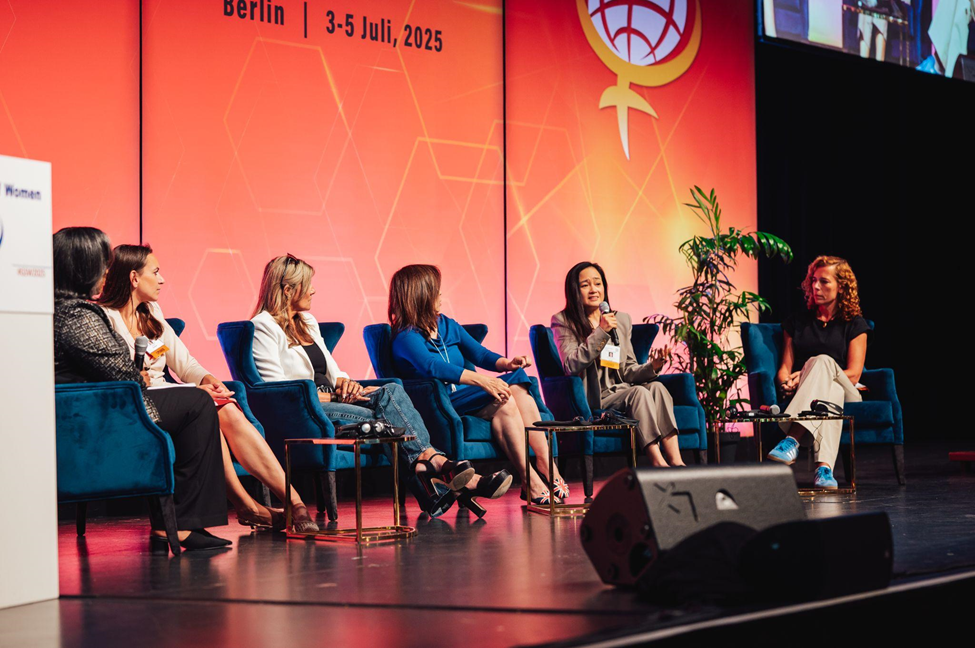 |
Nguyen Thi Tra My (second from right) speaking at the summit. Photo: GSW |
Nguyen Thi Tra My (second from right) speaking at the summit. Photo: GSW
With a transparent approach, a methodical strategy, and a long-term vision, the company gradually persuaded major investors such as the International Finance Corporation (IFC) (a member of the World Bank Group), Sojitz Corporation (Japan), C.P. Group (Thailand), the Credit Guarantee and Investment Facility (CGIF) (a trust fund of the Asian Development Bank (ADB)), Standard Chartered Bank, and Sumitomo Mitsui Banking Corporation (SMBC).
For over a decade, PAN has executed numerous mergers and acquisitions, developing an ecosystem of 12 companies operating in agriculture, aquaculture, and food.
"Through many deals, we realized that the higher the trust and credibility we built, the more diverse the resources we could access—not just financial, but also true partners willing to accompany us for long-term development," My said.
From a revenue of 284 billion Vietnamese dong in 2012, PAN's consolidated revenue reached over 16,184 billion Vietnamese dong in 2024, a 57-fold increase. Exports contributed about 50%. According to the CEO, conquering the international market is not a choice, but PAN's identity and growth path.
My stated that many of the company's products, such as packaged rice, coffee, cashews, confectionery, and processed shrimp, are now available in major global retail chains like Costco, Amazon, Walmart, and Tesco. "This is not only a positive sign of our development direction, but also shows that Vietnamese businesses can compete equally in the international market," she added.
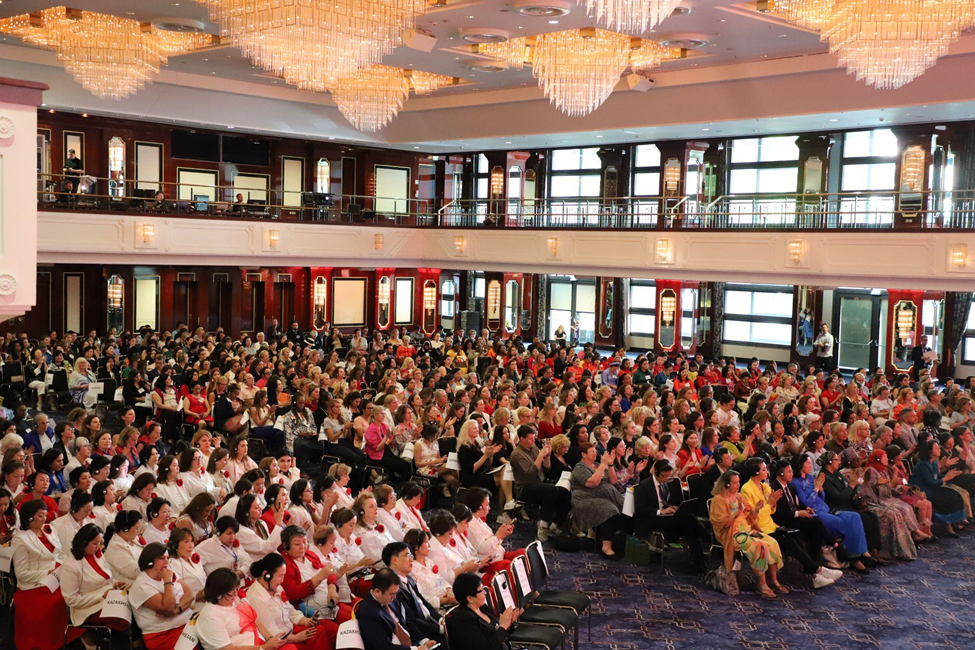 |
Over 1,000 delegates from 60 countries attended the summit. Photo: GSW |
Over 1,000 delegates from 60 countries attended the summit. Photo: GSW
Faced with economic fluctuations and increasing demands for sustainable development, PAN is entering a new phase, shifting from consolidating internal resources to accelerating transformation. The company is focusing on three strategies: R&D and green growth, digital transformation and data management, and empowering the next generation.
Specifically, PAN is investing in biotechnology and climate-smart agriculture to develop crop varieties and farming methods that reduce carbon emissions, protect biodiversity, and ensure food security, not only for Vietnam but also for the world.
At the same time, the company is integrating AI and digital tools across its entire value chain—from farms and factories to offices—to increase transparency, traceability, and support faster, more effective decision-making.
However, according to My, one of PAN's current challenges is leadership succession. "Many key leaders have been with PAN for decades; some are 75 or 85 years old. The big question is how to pass on the torch—not just the responsibility, but the spirit?" she posed.
The PAN CEO believes that the next generation needs to both understand the business and have a startup mindset, innovation, a commitment to sustainable development, and digital transformation capabilities.
"If we trust and give young people the opportunity to 'think differently - do big' and lead them with clear goals, the company will not only develop, but also develop sustainably and endure," My shared.
The company is currently building a succession team with a global mindset, committed to innovation and sustainable development. According to PAN's leadership, the generational transition process needs to be well-prepared, with a clear roadmap, and, importantly, the right people chosen to continue leading the organization forward.
Minh Ngoc



